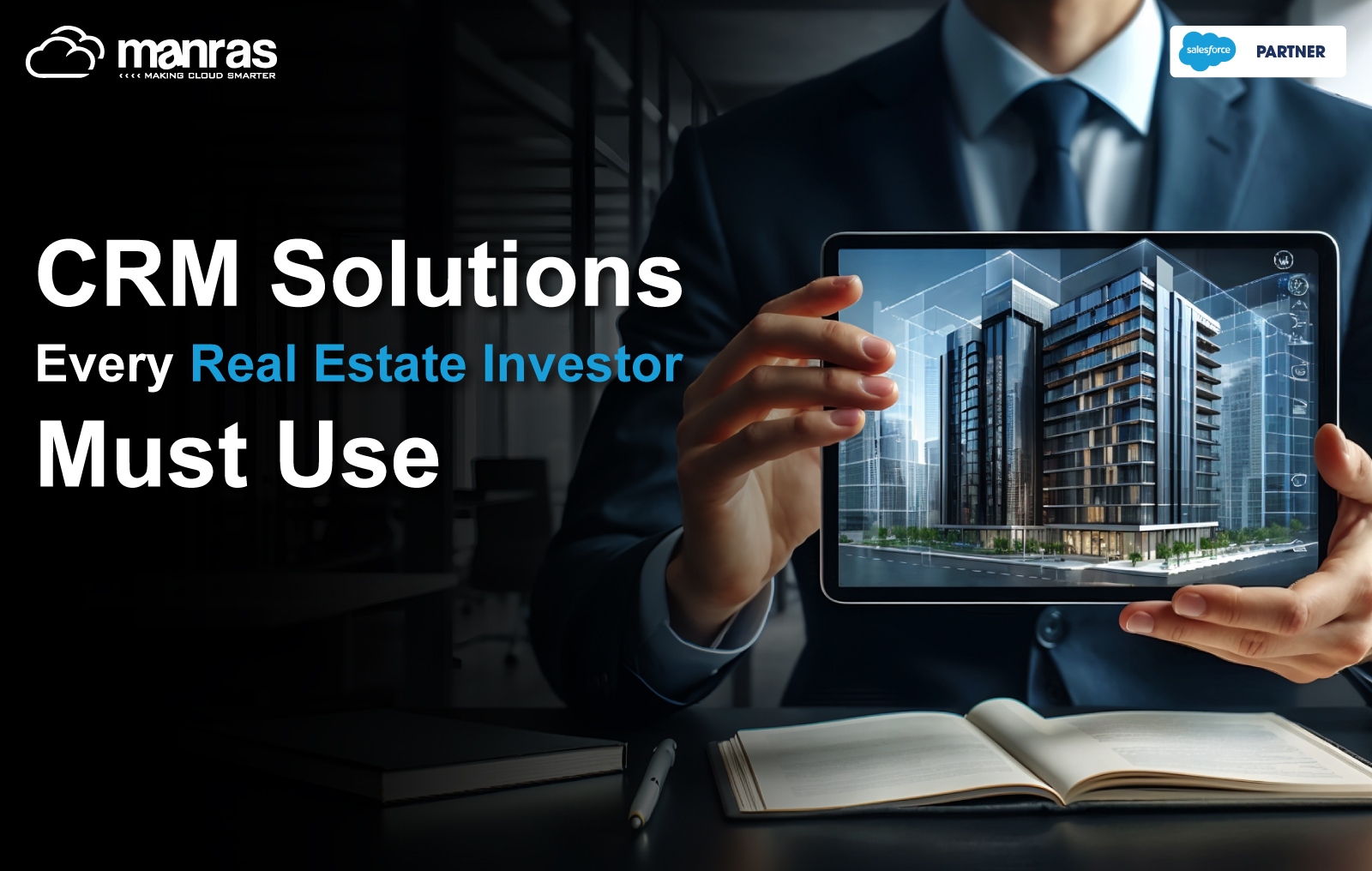Property investing doesn’t just consist of looking for properties. There’s much more to it, such as managing relationships, tracking deals, and documenting important information. CRM for real estate investors provides a consolidated workplace to allow you to complete all of these tasks at once while also maintaining your credibility as a professional. It enables you to follow up on every lead and close every opportunity while still tracking other important information.
Real estate investors juggle multiple leads, properties, clients, and partners across various platforms, and handling it all manually can delay decisions and lead to errors. A good CRM solution consolidates these functions into one system and enables real estate professionals to save time, make decisions based on numbers, and maximize ROI on all of their investments.
Why Real Estate Investors Need a CRM
Real estate people manage multiple leads, properties, and clients at the same time, and CRM for real estate investors helps them facilitate everything in one application. Investors are able to track conversations, follow up on opportunities that are “in the pipeline,” and report on details of single properties without wasting unnecessary time or information.
In addition to being able to easily store any combination of information that is important to the investor, a great CRM helps investors prioritize high-value deals, automate reminders, record next steps, and track activity on all properties in the investor’s portfolio. A CRM changes the business of an investor by making decisions faster, making more intelligent decisions, having stronger professional relationships, and taking more opportunities before others can compete against it.
Essential CRM Features for Real Estate Investors
Investors manage leads, properties, clients, and deals every day, and using CRM for real estate investors allows them to maintain and manage everything in one complete package of options. With a CRM, investors can house all information, track interactions, and automate workflows, allowing it to be the foundation of smarter, faster, and more profitable real estate investing.
Lead & Contact Management
Investors will house all leads, clients, and partner contact information in one place. They can categorize contacts while easily tracking communication history for all contacts and then quickly spot emerging leads to focus on.
Deal & Pipeline Tracking
The simple CRM for real estate lets investors monitor each deal from first lead to final closing. Investors can see where each deal stands, identify a prioritized next step, and lessen the chances of losing deals.
Property Portfolio Management
Investors have easy access to all property information, such as details, rents, maintenance information, and valuations. By having this high-level view of activities and key property information, they can manage a variety of properties without having to lose sight of what is going on.
Automated Reminders & Notifications
The system can send automated alerts for scheduled follow-up, meetings, and any important and critical deadlines. Investors can be proactive in their investing strategies and can help ensure that they don’t miss out on important opportunities.
Analytics & Reporting
Investors can analyze deal performance, determine ROI for each deal, and see market activity trends or movements. These features will allow investors to make data-based decisions or improvements to their investment strategies and processes.
Integration Capabilities
The CRM links effortlessly with email, finance apps, and other essential tools. Investors get to work smoothly without having to enter data manually or duplicating what they do.
BuilderOpedia – The CRM for Real Estate Investors
Investors are always dealing with leads, properties, and client relations, and CRM for real estate investors like BuilderOpedia allow them to organize their data, automate workflows, and classify everything in one place. BuilderOpedia also allows investors to track deals, analyze portfolios, and make decisions faster.
What makes BuilderOpedia unique to real estate investors?
Lead & Contact Management
BuilderOpedia has all investors, clients, and partner contacts in one place. Users can categorize the leads, see previous conversations, and quickly identify and prioritize solid opportunities.
Deal & Pipeline Management
Investors track every deal from first contact to closing. BuilderOpedia visualizes the pipeline, highlights what steps are critical, and helps investors prioritize what are the best opportunities to get deals across the finish line.
Property Portfolio Management
BuilderOpedia allows investors to manage properties easily, including rental income, maintenance schedules, and valuations. Having portfolio management centralized allows an investor to keep track of everything and lose sight of parts of their portfolio.
Automated Reminders & Notifications
The CRM has alerts built in for follow-ups, deadlines, or meetings. Investors can stay ahead of the game and avoid lost opportunities by notifying them to act quickly.
Analytics & Reporting
BuilderOpedia analyzes deal performance, ROI, and market trends. Investors will use these analytics to make data-driven decisions and optimizations.
Integration & Customization
All tools integrate with your own and allow for as much customization as you want. Investors can tailor BuilderOpedia to fit their workflow, boosting efficiency and saving time.
Best Practices for Using a CRM in Real Estate Investing
Investors manage multiple deals, clients, and properties, and CRM for real estate investors keeps them organized, provides performance tracking, and allows them to act quickly. By implementing best practices, investors can maximize the value of their CRM by keeping it in alignment with their workflow and objectives.
Keep Data Clean and Updated
It’s important to regularly input new leads into your CRM, the details of your property, and other interactions with clients. Clean and up-to-date data enables an investor to make educated decisions based on accurate information.
Automate Your Repetitive Tasks
You can automate reminders for clients to regularly follow up, send out emails, and track the stages of your deal. Automation frees up your time and ensures important tasks never get missed.
Segment Contacts for Tailored Communication
The simple CRM for real estate should allow you to segment leads, investors, and tenants so you can personalize the message. Personalized communication creates stronger relationships and enhances engagement.
Monitor Key Performance Metrics
For example, rate of return, percentage of deals converting, and property performance. By measuring these metrics frequently, investors can further enhance their strategies as well as learn about new revenue opportunities.
Integrate With Other Tools
Connect your real estate investor CRM with email, finance, or property management tools. When workflows are streamlined and centralized with integrations, the results can be very positive.
Ongoing Uplift Team Knowledge
Getting everyone in your team to use the CRM is essential. Consistent training will encourage usage, consistency, and routines.
Conclusion
The serious investor manages many properties, clients, deals, and workflows on a daily basis, and a CRM for real estate investors provides them with the tools they need to stay structured in operations, proactive in progress, and methodical in growing a business. A CRM is no longer a luxury; it is the backbone of efficiency, informed decision-making, and a consistent approach to executing deals.
Selecting the right CRM for your needs and planning how to use it smartly so that you can save time and then do more deals can maximize return on investment. Real estate investors who implement a CRM for their process that works for their own workflows find clarity, develop relationships, and retain an advantage in the competitive real estate world.
Consider your options today, implement BuilderOpedia CRM that matches your investing strategy, and get started on turning leads and property data into measurable growth.



